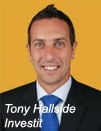The Saudi Stock Exchange – known as the Tadawul – is expected to open up to direct foreign investment later this year, as part of a reform agenda aimed at modernising the country’s securities markets.
Although no official statement has yet been made, market participants in the region report that regulator the Capital Markets Authority (CMA) is now seriously considering the practical steps needed to allow foreign direct investment before the end of the year – a step that would unlock the latent international interest in the Tadawul, according to some observers.
"Saudi is making massive improvements to its whole financial system,” Tony Hallside, regional director, Dubai, at investment management consultancy Investit told theTRADEnews.com. "The CMA is becoming a world class regulator. A well regulated financial industry is in their own domestic interest – it diversifies their economy away from reliance on the petrol dollar and has massive growth potential."
Until now, large foreign institutional investment firms wishing to open offices in Saudi Arabia have had to form new subsidiary businesses in partnership with local Saudi companies. Direct investment has remained impossible, while reforms have been limited. Since 2008, foreign investors have been able to buy Saudi shares indirectly by means of total return swaps via licenced brokers. For example, broking house Crédit Agricole Cheuvreux offers clients the ability to gain exposure to the Saudi Arabian equities market using proprietary notes (p-notes) – equity-linked certificates that allow foreign companies to invest in stocks in Saudi without being licensed to trade there – with local broker Fransi Tadawul, a subsidiary of Banque Saudi Fransi, in which Credit Agricole investment banking subsidiary Calyon has a 31.1% stake.
Cheuvreux’s p-notes are guaranteed by Calyon and are denominated in US dollars, thus avoiding local currency exposure. No pre-funding is required because the contracts settle in dollars via European central securities depository Euroclear. But the holder of the notes does not have any voting rights and details about the beneficiary have to be reported to the CMA, while short positions are not permitted at all.
“Regulators and exchanges in Saudi are taking input from banks, index providers and market participants on foreign direct participation,” said Tarek Lotfy, managing director of capital markets at Dubai-based fund management and investment banking group Arqaam Capital. “I’d still expect to see gradual change towards opening up the Saudi stock market – but any change in that direction is most definitely a good thing.”
Chasing MSCI reclassification
One of the key indicators of progress could be the country’s potential classification as an emerging market by MSCI, the global index provider, a step that would encourage many foreign institutional investors to participate at the Tadawul, once direct investment is approved. Yet disputes between the index provider and the Saudi authorities over market data have led to the failure of earlier efforts to upgrade the country.
Qatar's inability to improve foreign ownership limitations and continuing concerns over how the UAE deals with failed trades stopped MSCI from upgrading the two countries to emerging markets status last year. But this does not dim the appeal of market reform in Saudi and the other Gulf region markets to international investors, according to Hallside.
"The global allocation of capital to the Gulf Cooperation Council (GCC) if its markets obtained emerging market status would rise dramatically,” he said. “And of that, the majority is Saudi. There's massive growth potential in the Saudi financial markets. Saudi Arabia and several other GCC countries are an obvious choice for reallocation of assets as fund managers pull resources away from Europe and the US due to the difficult economic situation there."
Despite past disappointments, developments in Qatar, which is seeking to build up its own position as a financial centre, may also provide opportunities to international institutional investors. The choice of the country to host the world cup in 2022 is prompting massive government spending on infrastructure in Doha, the capital city, with positive knock-on effects on the region’s economies.
"It is billed as the greatest show on earth and it's prompting a supposed US$50 billion spend on infrastructure,” explained Hallside. “That can't help but flow through to other countries in the region. It's an exciting time for the Middle East.”
The announcement by the Qatar Exchange on 17 January 2012 that a new market for small and medium enterprises (SMEs) is now ready and able to receive listing applications from Qatar and other GCC countries will also help. The exchange is supported by the Qatar Development Bank, Silatech and Qatar Enterprise, following approval by Qatar’s Supreme Council for Economic Affairs and Investment.
Last year was undeniably a difficult year for many of the region’s stock markets, caused in part by disruption relating to the Arab Spring movement. Yet Hallside notes that market sentiment since the new year has been relatively bullish. Sovereign wealth funds are investing inside Saudi Arabia and virtually every bank active in Saudi Arabia announced an increase in profits and revenues for 2011, he insists. Stock markets in Iran and Iraq have also performed surprisingly well in 2011, according to a new report from The Economist Intelligence Unit – suggesting that the opportunities offered by the Middle East region may feature more heavily on the radar of many institutional investors in 2012.
“Securities market reform in Saudi Arabia and beyond is very positive for us,” said Lotfy at Arqaam Capital. “Saudi is a hugely important market by volume, size and market activity. The GCC countries are well placed – they have escaped the worst of the financial crisis and have access to great natural resources. I expect that 2012 will be a good year for the Gulf.”
